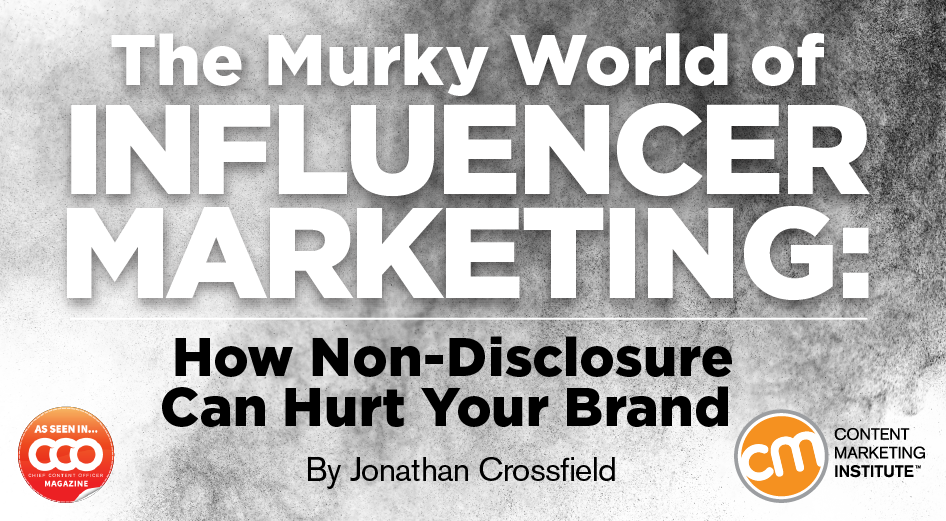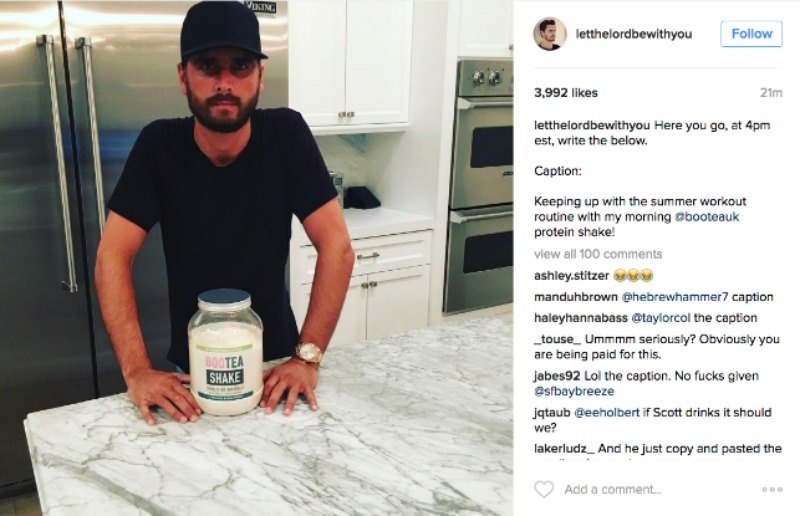Author: Jonathan Crossfield / Source: Content Marketing Institute

Ever since marketers cottoned on to the potential for social media to drive influential word-of-mouth brand recommendations, they’ve tried to either foster or fake these discussions.
“I heartily endorse this event or product,” says a monotone Krusty the Clown in a snippet of video used to advertise everything from cough syrup to atomic particle accelerators. Krusty’s cut-and-paste approach to celebrity endorsement might be a long-running gag on The Simpsons, but the rise of influencer marketing in social media may mean the joke is getting just a little too close to reality.
Last year, Scott Disick of Keeping Up with the Kardashians fame (don’t worry, I didn’t know either) accidentally revealed to his Instagram audience just how little effort he puts in to his well-paid endorsements by cutting and pasting a little more than he intended:
“Here you go, at 4pm est, write the below: ‘Keeping up with the summer workout routine with my morning @booteauk protein shake!”

Leaving aside the carelessness with which Disick carries out his sponsored activities – I mean, he had one job to do – don’t let it escape your notice that the brand also scripted the post for him. I like to imagine those 12 unremarkable words were the result of a lengthy copywriting process of agency drafts and stakeholder approvals where no one – even Disick himself – noticed that he’s supposedly preparing his morning protein shake at 4 in the afternoon. And, while Disick may have unwittingly disclosed the brand relationship, the intended text contains no such disclosure. The whole exercise is about as authentic and convincing as the president’s hair.
Whom do you trust?
It’s not surprising that influencer marketing is a popular way for marketers to get their message out. When it comes to trusted sources of information, a word-of-mouth recommendation always ranks highly.
Even if Dunkin Donuts is a sponsor of America’s Got Talent, should #ad disclosures extend to related social media updates like this? (We think it should.)
We’re also more likely to trust those we admire — the famous, the noteworthy, or the highly successful people who represent qualities and values we might aspire to. It’s why every new book comes with recommendations on the jacket from authors we’ve read, why sports fans dress like sports players, and why rock fans dress like rock stars.
These influencers don’t always have to be mega-stars either, but the right influencer with a big enough audience within the right niche can have a massive impact.
According to the 2017 Edelman Trust Barometer, an annual global survey of trust and credibility, 55% of respondents say, “Individuals are more believable than institutions, and a company’s social media page is more believable than advertising.”
Huzzah! If consumers are skeptical toward brands talking about themselves, let’s fire up the social media machine and find ways to get more trusted and relatable individuals talking about us instead! Let’s take the reasons they don’t trust our own marketing – too scripted and rehearsed, too self-serving and out of touch, too fake – and carry them over into the word-of-mouth space until we sap these trusted individuals of any credibility as well!
OK, I’m sure that last bit isn’t what marketers intend when designing their influencer strategies, but that will be the result if they continue the way they’re going.
When is…
Audience Team
The digital audience insights you need to build, manage and market to your digital audiences.

